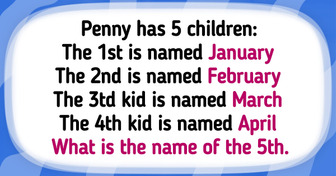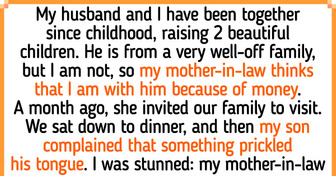I Broke Up With My Fiancé Right Before the Wedding After Reading a Note From My Maid of Honor

As a parent, you must assume various roles such as a cook, entertainer, cleaner, teacher, nurse, and psychologist. There is no parenting book with answers about how to address issues. That’s simply because there is no universal answer to the same problem.
However, reverse psychology may be just the right path to convince your children to do things they complain about and control them from inappropriate conduct. Stay with us as we unfold how this technique works and whether it’s successful or not.
A simple definition of reverse psychology is that you tell someone to do the opposite of what you want them to do. Why, though? It's not a secret that kids—and adults, but that's not relevant—are not always obedient, as they refuse to do certain things just because they don't want to listen to their parents.
For example, you may ask your kid to help you do the dishes, with them refusing vehemently. So, instead of ordering them to do something, you can make it look like you're offering them a choice. "Do you want to help me clean the dishes or clean your bedroom?" As a result, they feel independent.
It's them making a decision, not their parents. At least, this is what reverse psychology makes them think. This technique is more effective on toddlers, as they are constantly learning new things. Once your child has done what you've asked them to do, you can offer them a reward. For instance, extra play time or screen time.
Let's get more practical. Which methods can you use to employ reverse psychology? There are four different things you may try.
Knowing the difference between reverse psychology and controlling is an art. While using tricks can be effective, you shouldn't resort to them all the time. That's because if you do it constantly and inappropriately, your child's self-esteem may suffer significantly.
Also, reverse psychology has a very limited life span. For how long do you think kids will fall for the same trick over and over again? As they get older, and their intellectual capacity becomes broader, they'll start seeing right through your tactics. No matter how much you use it, make it fun and not demanding.
While we don’t have a plethora of evidence, we have two wonderful experiments proving the usefulness of reverse psychology. In that case, children were told not to play with a certain toy. All of a sudden, the kids wanted to play with that game really badly, meaning that the moment something becomes untouchable, you must have it.
In another experiment, older kids were given five posters and told to pick one of them. A while later, they were told that one of them was not available anymore. Suddenly, the missing poster became really desirable, even if kids weren’t going to choose it.
If your reverse psychology tricks are no longer working, you need to establish a new approach that is based on honesty.
Once your kids get a bit older, you may have a serious conversation about choices and decision-making. Sure, they want to play video games instead of doing their homework. How will that impact their future, though?
Teach them that their actions have consequences. So, if their long-term goal is to go to university, they need to study more to achieve good grades. It's not about you making them do something, but about them working toward their future goals.
If you do not want to resort to reverse psychology anymore, there is research stating the importance of positive parenting, which is focused on clear communication. But what is positive parenting exactly? It's about teaching and encouraging children to act how you want them to without misleading them. Also, you make it clear that you love and care for them no matter what. These are the five steps to begin your positive parenting journey:
If you enjoy pieces on psychology, you may be interested in reading about parenting tricks that were once unacceptable but are now widely respected. For instance, would you let someone hold your child even though they were crying?











